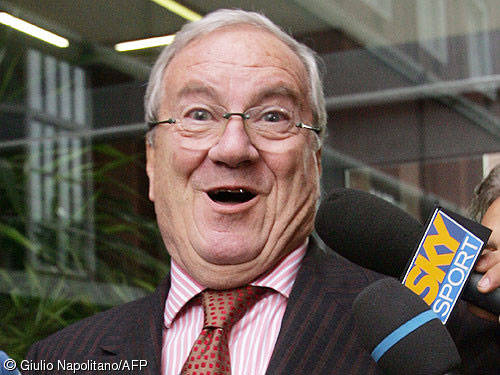For More Laissez-faire Wall Street Wants Regulations
Last January, “la Repubblica,” one of Italy’s major dailies, ran an excerpt from Guido Rossi’s new book “Il Mercato d’azzardo” (“Gambling With the Financial Market”), in which he described ways to “confront [today’s] global market liberalism.” In his latest book, Rossi, a former top-level Italian banker and university law professor with a master’s from Harvard, criticized Italian regulatory agencies for their ineffectiveness. It is assumed that the excerpt published by “la Repubblica” didn’t do justice to the book in which Rossi repudiated the laissez-faire attitude of the last decade and credited Italian antitrust laws, rather then the free market philosophy, for the merits of free trades. This subject is indeed the essence of the future of Italy (and other countries), and it is highly significant that it is expounded by a top gun, such as Rossi, considering that, in the past, he had been part of the problem, both as president of telephone giant Telecom Italia and as head of CONSOB, Italy’s regulatory authority for the stock market.
This subject is of particular relevance to me, since for years I’ve risked the ire of U.S. TV networks and studios by tediously writing against vertical and horizontal integration. The problem with “the market knows best” philosophy, which is the U.S. version of the French laissez-faire, is that the financial sector –– both in Italy and in the U.S. –– has subjugated the political process. Indeed, vertical and horizontal integrations were not dictated by market strategies or company plans, but solely by financial engineering devised by Wall Street. How many times, for example, has it been said that, with vertical integration, in effect, companies are reduced to selling their products and/or services to themselves? Not that this logic would deter Wall Street from making a killing and, in the process, creating havoc with companies. Now that there are no more worthwhile companies to integrate, Wall Street (the sector that, after all, Rossi exemplifies) began promoting the break-up of conglomerates. In these cases, the social advantages, which this time are real, are not of concern to the financial sector. What still counts is the great potential that break-ups could represent to make money. Even though this latest financial “doctrine” is more than welcomed, it is important to point out how, once again, it is not the political leadership making this decision, but rather the financial sector.
As a curiosity, I’d like to remind to our readers of my past denunciations of slogans such as: “think globally, act locally,” and “globalization generates wealth,” as well as the fateful, “market knows best.” At every turn of the screw by the financial powers, I’ve followed with editorials to explain how Wall Street loves monopolies, duopolies, market leaders and dominant positions that, ultimately, have nothing to do with American and Italian principles: Capitalism founded on free markets, fair competition, equal opportunities and equal rights. In the past, in order to be able to execute its plans, Wall Street had to first push for the weakening of regulatory agencies and, later, by the legislative elimination of all kind of rules and regulations. This was achieved by simply “acquiring” politicians by contributing with plenty of money to their campaigns (among which was former U.S. president Bill Clinton who excelled at abrogating regulations). No scandals here.
The “acquisition” of politicians by special interest groups is something that is done openly in the U.S. and is well documented. In Italy, however, the elimination of rules and regulations, especially in the financial sector, has been executed in a very subtle way, first by creating controlling authorities, such as the one for Privacy (in order to prevent published accounts), second by punishing the press for investigative reporting and, finally, by weakening regulatory agencies such as CONSOB, which, at one time, Rossi presided over.
Going back to what is generally referred to as Wall Street, it is interesting to note how this ominous embodiment of financial power, by corrupting the political power, has been able to have regulations discarded on local and national levels, and, at the same time, strengthen regulations at the international level, through the World Trade Organization (WTO). Indeed, strict international regulations that went against the interest of small local companies were created through the WTO. In effect, the WTO power forced all countries to favor the creation of large conglomerates for the sole purpose of taking advantage of WTO competition rules. For Wall Street, the creation of WTO-spearheaded conglomerates at the global level represented an enormous source of new opportunities for added revenues. Now that this cycle is closed due to a lack of companies to integrate in a financially viable way, Wall Street started to promote diversification, going back to: “smaller is better,” and “the high cost of low-cost,” which contrasts with their old “economy of scale” concept. This latest Wall Street salvo is being executed with a series of books, lectures and newspaper articles, not only in the U.S. but in Italy as well, all denouncing the past laissez-fare, as in Rossi’s latest book.
Incredible as it seems, after the latest U.S. scandal over poisonous toys (caused by the weakening of the appropriate controlling authorities), the same conglomerates that were affected by the collapse of sales of their products, asked for the reinstatement of more stringent regulations ostensibly for “better consumer protection.” In actuality, these conglomerates have discovered that, with stronger regulations, their risks are minimized and cost of quality control is transferred to the government.





































i-Italy
Facebook
Google+
This work may not be reproduced, in whole or in part, without prior written permission.
Questo lavoro non può essere riprodotto, in tutto o in parte, senza permesso scritto.